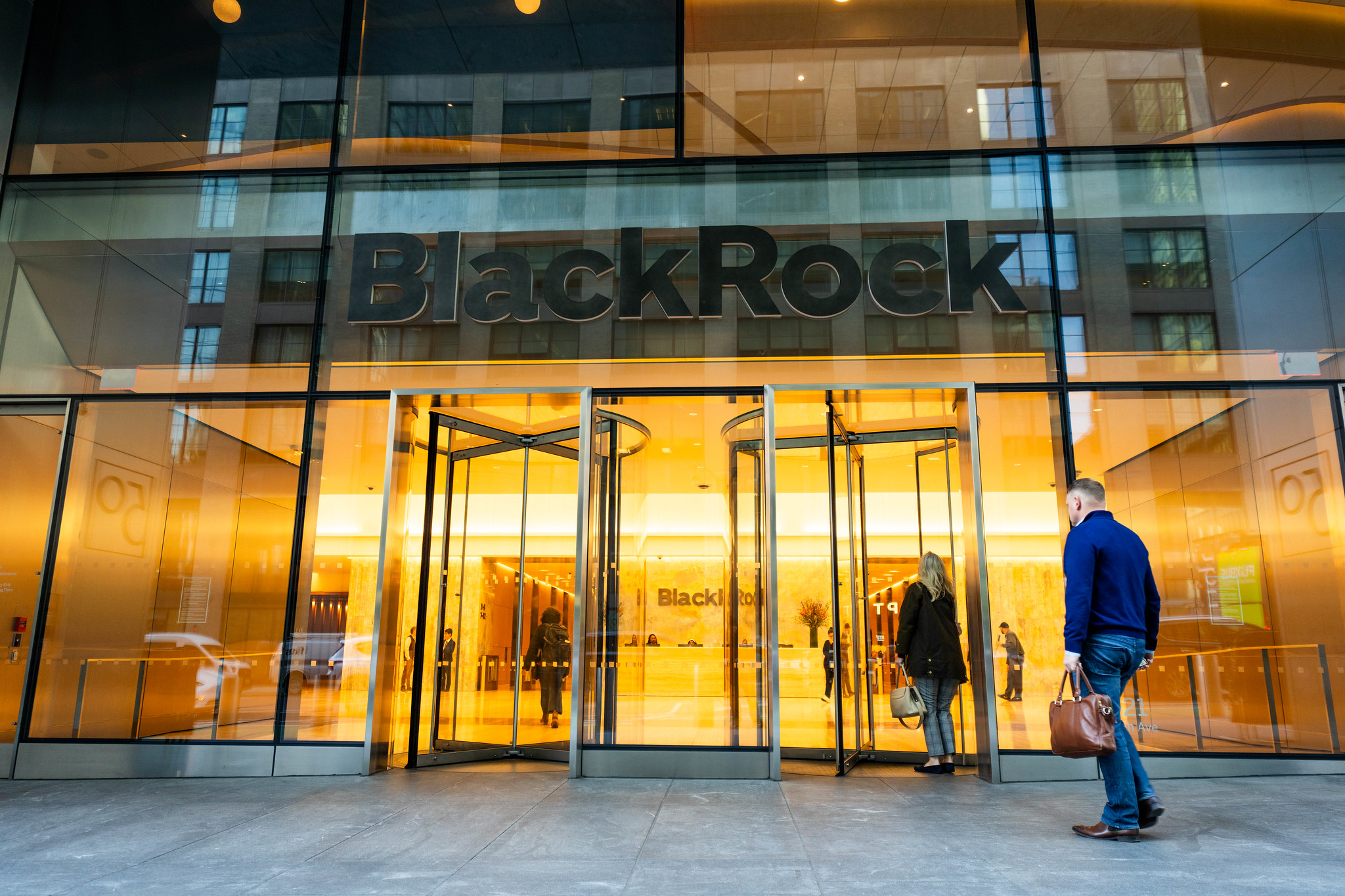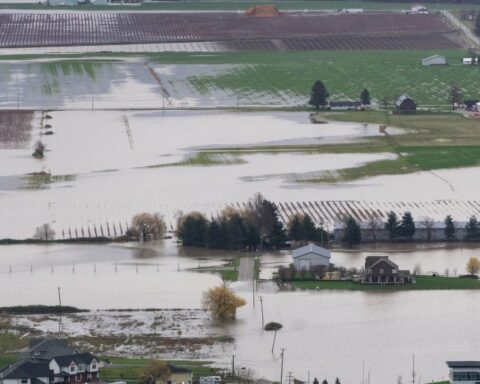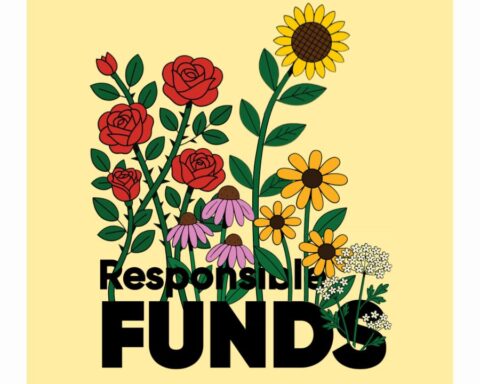Editor’s note: This story was updated on January 20, 2025, to reflect recent developments.
The umbrella organization for global financial-industry action on climate change, the Glasgow Financial Alliance for Net Zero (GFANZ), is in crisis after major U.S. and Canadian financial institutions quit the alliance in recent weeks. In a related development, the money manager group affiliated with GFANZ suspended its activities and will review its future in the face of growing challenges to climate action by lawmakers, the courts and clients.
The suspension is part of a stunning chain of events that has rocked the member alliances of GFANZ and the umbrella organization itself. The crisis was triggered by the recent departure from the Net Zero Asset Managers (NZAM) initiative of U.S.-based BlackRock, the largest money manager in the world, and the exodus of six large U.S. banks and four large Canadian banks from the GFANZ-affiliated banking alliance.
The GFANZ crisis comes as U.S. public attention focuses on global warming with climate-induced fires ripping through Los Angeles suburbs and recent data that show the earth experienced record-breaking global temperatures in 2024.
The dilemma highlights the depth of anxiety felt by executives of major financial institutions, particularly those in the United States, over the pushback to the net-zero agenda triggered by the election of Donald Trump, and a growing hostility to environmental, social and governance (ESG) investing by U.S. courts.
These events also come at a bad time for former central banker and GFANZ founder Mark Carney, the former United Nations special envoy on climate action who is now running to lead the Canadian Liberal Party into a national election later this year.
Why is this crisis happening now, and does it represent an about-face by the financial industry in how it handles the climate emergency? Here’s a backgrounder with questions and answers on recent events.
What is GFANZ?
GFANZ is a global network of financial institutions supporting the Paris Agreement goal of a transition to net-zero by 2050. The “Glasgow” in GFANZ comes from the Scottish host city for the 2021 UN climate summit where the alliance was launched. GFANZ was regarded as the world’s most important organization coordinating climate action by banks, asset managers, asset owners and other financial sectors, though now that reputation is very much in doubt. According to GFANZ’s 2023 progress report, 675 institutions from 50 countries were members of its affiliated alliances in these sectors.
What’s happening now?
Between December 6 and January 7, Goldman Sachs, Wells Fargo, Citigroup, Bank of America, Morgan Stanley and JPMorgan Chase – the six largest banks in the United States, with vast operations around the world – announced departures from the Net-Zero Banking Alliance (NZBA), the banking network affiliated with GFANZ. According to NZBA’s website, U.S. participation in the banking alliance is now down to three explicitly sustainable and responsible banks: Amalgamated Bank, Areti Bank and Climate First Bank. Four large Canadian banks – TD, Bank of Montreal, National Bank and CIBC – also left the NZBA on January 17.
On January 9, BlackRock left NZAM, the asset manager alliance. Many small and medium-size U.S. asset managers remain at NZAM. However, BlackRock’s departure is a big loss. The asset management industry is dominated by three companies internationally: BlackRock, Vanguard and State Street. Only State Street remains from these three companies after Vanguard left the alliance in 2022.
RELATED
Seven sustainable finance predictions for 2025
Four key lessons from the world’s top responsible investors
Insurance giants exit net-zero pact
What’s behind this exodus?
Statements by the banks have not provided a clear picture on why they have left NZBA, instead emphasizing a commitment to work with clients on sustainability matters. However, in a client letter about its departure, BlackRock said its net-zero alliance memberships “have caused confusion regarding BlackRock’s practices and subjected us to legal inquiries from various officials.”
In the last two years, banks and asset managers employing ESG investment practices have faced boycotts and lawsuits from Republican-led states. Most recently, Texas filed a lawsuit joined by 10 other states against BlackRock, Vanguard and State Street, alleging that their energy and ESG investment policies conspire to reduce competition in the coal industry. A federal judge has recently ruled that American Airlines breached its legal duty to make pension investment decisions based solely on financial interests by allowing BlackRock, its pension manager and a major shareholder, to consider ESG factors.
These business and legal considerations have unnerved the financial community, but there is also growing unease at the prospect this month of Donald Trump assuming control of the White House while Republicans control Congress. “A few years ago when climate change was at the front of the political agenda, the banks were keen to boast of their commitments to act on climate,” Patrick McCully, analyst at the Paris-based climate group Reclaim Finance, told The Guardian. “Now that the political pendulum has swung in the other direction, suddenly acting on climate does not seem so important for the Wall Street lenders.”
What does this mean for GFANZ?
The depth of the crisis is demonstrated by the NZAM suspension, which means the group will suspend the tracking of implementation and reporting of climate activities by its member firms. It will also remove the commitment statement for member firms from its website, along with the names of members, their targets and case studies.
In addition to the NZAM announcement, GFANZ announced it will allow participation from “any financial institution working to mobilize capital and lower the barriers to financing energy transition.” What this means is that GFANZ will no longer require its members to belong to any of the sectoral alliances, which expect members to adopt net-zero targets and transition plans to achieve them.
GFANZ also said it will be governed by a “principals group” outside of the sectoral alliances. Perhaps most significantly, GFANZ said it will turn its focus to closing the investment gap needed for the energy transition, especially in emerging markets and developing countries. This signals that the focus will no longer be on the net-zero transition of banks, asset managers and asset owners and instead will concentrate on the capital needs of developing countries.
Is the financial industry abandoning net-zero?
None of the departing companies cited any change to their net-zero targets, except for Morgan Stanley, which announced in October that it estimates that the 2030 implied temperature rise of its financed emissions could be as high as 1.7°C (above the Paris Agreement limit of 1.5°C). As for the remaining members of NZBA, the alliance continues to expect members to set and meet net-zero targets in alignment with the Paris Agreement. At least for now.
Even with few overt pullbacks in emission targets, the crisis at NZAM and the exodus of U.S. and Canadian banks from NZBA have dealt a major blow to GFANZ.
These leave the net-zero alliances significantly weakened, with less influence to counter the financing of North America’s oil and gas expansion. This is expected to create an even larger gulf between European financial institutions that operate under significant government climate directives and their less-regulated North American counterparts.
This puts the cause of voluntary global financial-industry collaboration on climate in doubt, as North American financial institutions seek to pacify an increasingly hostile political and legal environment.
Eugene Ellmen writes on sustainable business and finance. He is a former executive director of the Canadian Social Investment Organization (now the Responsible Investment Association).







